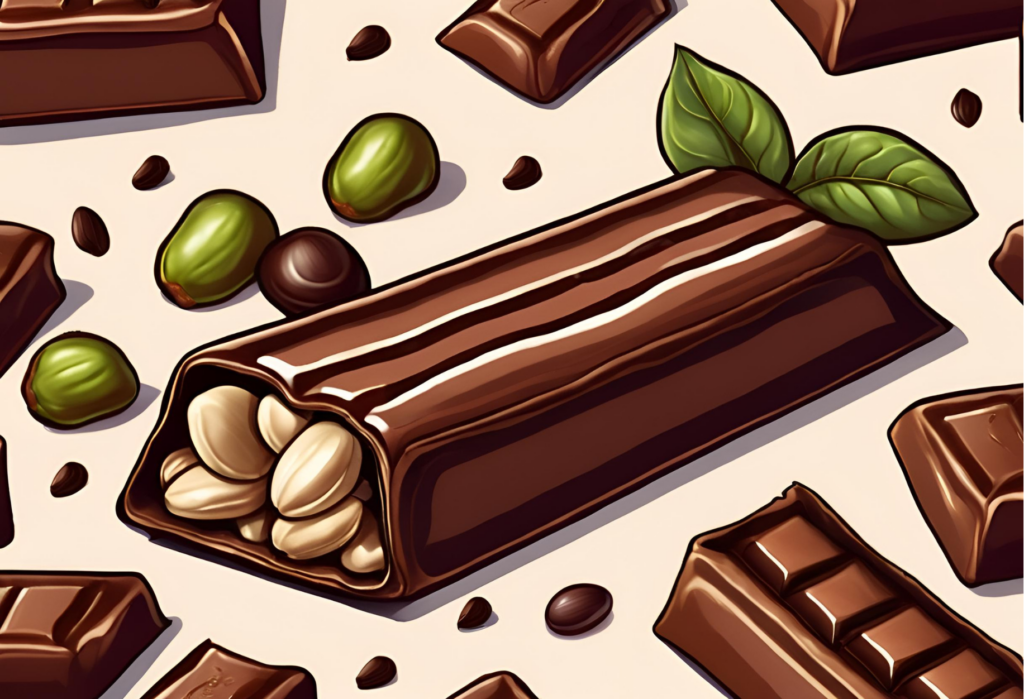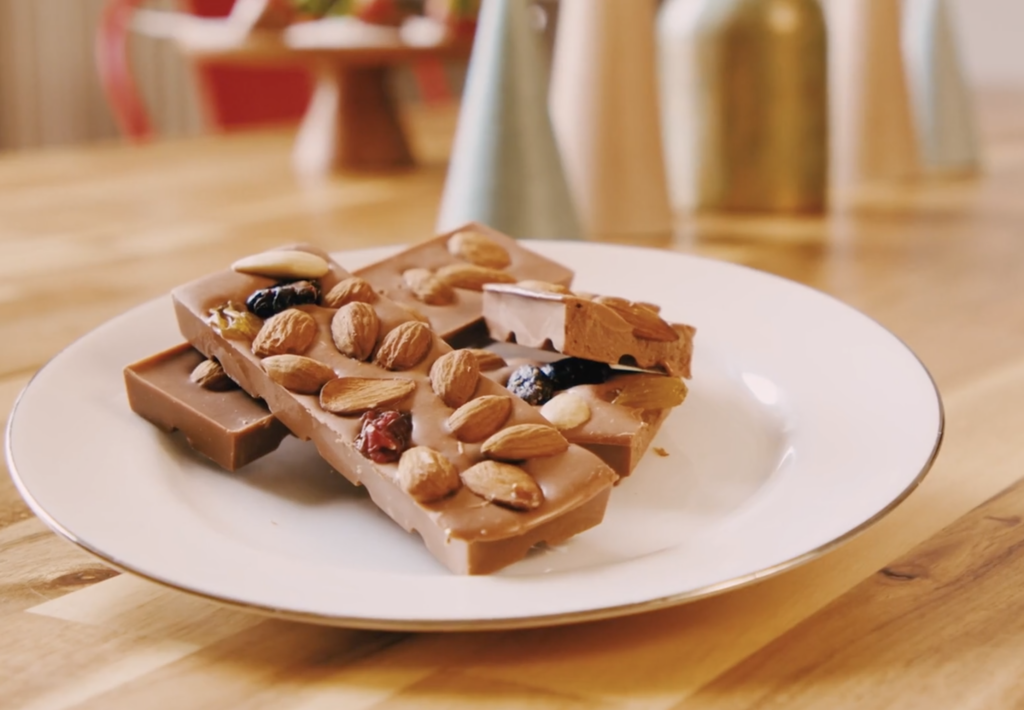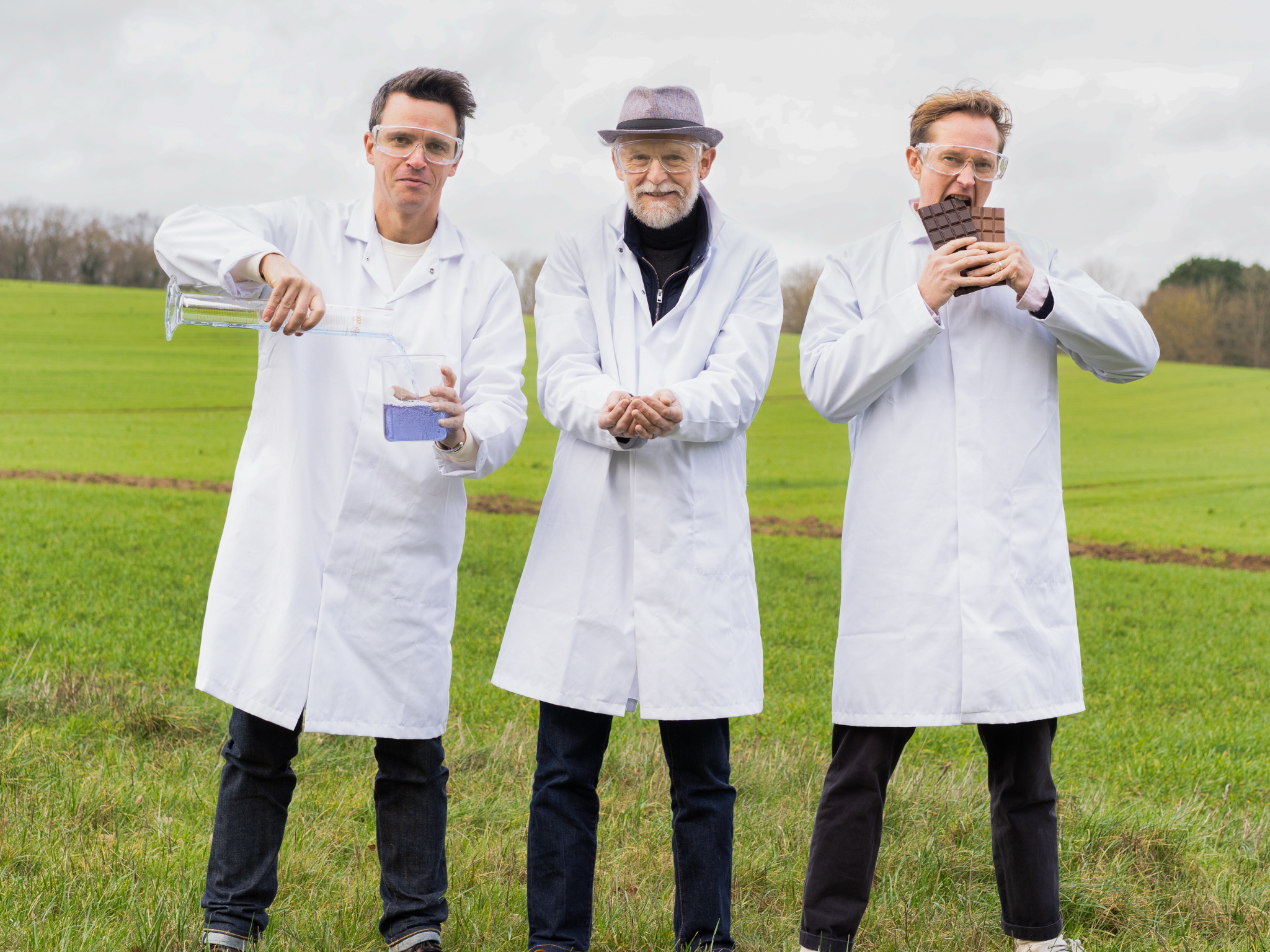4 Mins Read
German food manufacturing specialist Döhler has invested in UK startup Nukoko to scale up its bean-to-bar cocoa-free chocolate, ahead of a market launch in 2025.
This month, cocoa futures in the UK dropped by 16%, marking a rare gulf with US cocoa prices. But while that may seem like a good thing, it happened because of a shortage of high-grade cocoa.
It comes in a year where cocoa prices have hit record highs, thanks to extreme weather decimating crops in the two largest producers of the fruit, Ivory Coast and Ghana.
This is why certain up-and-coming startups in the food tech arena are vying for new solutions, with a view to creating climate-resilient chocolate alternatives (or even cell-based versions) with more robust and carbon-light crops, such as sunflower seeds, carob, or barley.
One of them is betting on fava beans (or broad beans, if you’re in the UK), the high-protein base for falafels and fūl in Egypt to pachamanca in Peru and doubanjiang in China. British innovator Nukoko is treating this humble bean – of which the UK harvests 740 tonnes annually – the same way chocolate producers process cocoa beans, ending up with what it says is the world’s first bean-to-bar cocoa-free chocolate.
To transform fava beans into chocolate, Nukoko makes use of the same fermentation processes, and as it looks to scale up and bring its version to market, it’s now being supported by Döhler, a behemoth in the fermentation and manufacturing industry.
Why Nukoko chose fava beans to overhaul cocoa

So here’s the problem, chocolate is a problematic ingredient. Dark chocolate produces more greenhouse gas emissions than every other food bar beef, and is highly water-intensive. The widespread use of palm oil has also meant the industry is linked to tropical deforestation (which accounts for 95% of all forest-clearing globally).
Cocoa is making the planet warmer. But climate change itself is wrecking cocoa – as mentioned above, yields are down and prices are up, and a third of all cocoa trees could die out by 2050. Farmers in Ivory Coast, meanwhile, have already lost 85% of the forest cover since 1960.
Nukoko is among a host of companies hoping to solve this problem. Some – like fellow British startup Win-Win, Italy’s Foreverland, Germany’s Planet A Foods, and US player Voyage Foods – are taking the same approach, using other ingredients and blending them with sustainable fats to make cocoa-free chocolate.
Others are coursing a different path. Israeli startups Celleste Bio and Kokomodo, US producer California Cultured, and Finnish giant Fazer are working on cell-based chocolate, while researchers have also discovered three cocoa-like plants that could lighten the load on the chocolate industry.
Nukoko, founded in 2022 by Ross Newton, Kit Tomlinson and David Salt, chose to use fava beans since they’re a hardy cover crop that’s grown domestically in the UK and the EU, can fix nitrogen, promote soil health, and shrink the need for fertilisers.
Its chocolate alternative is said to generate 90% fewer emissions, while also benefitting the human body through its high protein and fibre qualities, alongside 40% lower sugar content.
But the company claims this reduction in sugar has no effect on the flavour – and this could be thanks to the fact that fava beans, just like cocoa, contain a seed storage protein called vicilin. When this breaks down and the peptides are roasted, you’re left with chocolatey flavours.
Nukoko aims for a 2025 launch

Nukoko puts the fava beans through “unique biotransformation” and controlled fermentation processes, before they’re dried, roasted and ground into a cocoa powder that can be used in all sorts of chocolate formulations.
“Here in Europe, we’re using a fava bean, because they’re abundant, they’re cost-effective, and really beneficial to the soil,” Newton says in a video on the company’s website. “But as we grow into Asia, for example, we’ll use a domestic bean. That makes our technology truly flexible and scalable.”
Nukoko’s approach has impressed many in the food tech industry. The company has won a place at the IndieBio accelerator programme in New York, and was named on Forward Fooding’s 2023 FoodTech 500 list (described as the “Fortune 500 of agrifood tech”). Its potential has also led to development agreements with the likes of Swiss retailer Coop group, which has over 2,500 locations in the country.
Now, Döhler is lending its expertise in fermentation and ingredient manufacturing to help expand Nukoko’s operations. The company – which raised €1.3M in seed funding earlier this year – currently has a pilot facility where it works in 500kg batches, with Döhler helping it transition to 10,000-litre fermentation batches by next year, with a capacity of thousands of tonnes per month.
The process and ingredients mean Nukoko’s chocolate isn’t considered a novel food, and doesn’t require approval from regulatory authorities. “We aim to launch in the first half of next year,” Newton tells Green Queen. “Our focus is EU/UK, and we are purely a B2B ingredients supplier. We will start supplying milk and vegan milk alternatives initially.”
As an example of what these products would look like, he says the milk chocolate would contain 23% fava bean powder, shea butter, sugar, and sunflower lecithin.
Asked if Nukoko would be developing products with Döhler as well, he notes: “Yes, I imagine so.”



